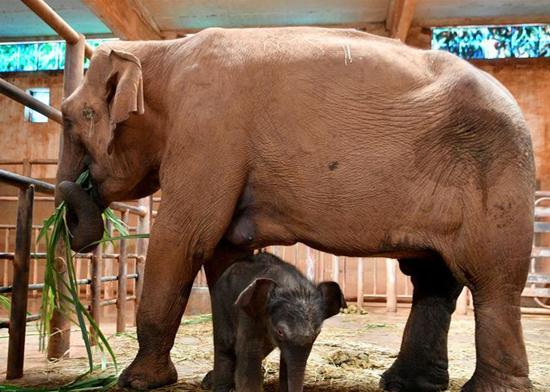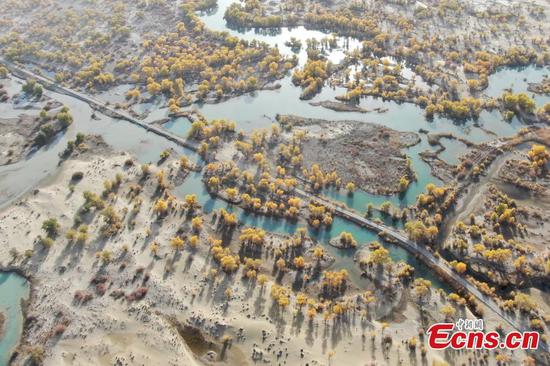
Two Tibetan antelopes spotted on the Qinghai-Tibet Plateau, Southwest China's Tibet autonomous region. (Photo/Xinhua)
Four new national level wildlife observation stations have been approved in the Tibet autonomous region this year by the Ministry of Science and Technology, local media reported recently.
According to the region's department of science and technology, with the addition of four new wildlife observation stations, the total in the region has reached nine.
It is part of the region's move to strengthen the construction and development of national level wildlife scientific observation and research stations in the new era, and to optimize the systematic layout of national scientific observation and research stations in the wildness.
The operation of national level wildlife scientific observation and research station is one of the important bases of national scientific and technological innovation, and an important part of the national innovation system.
The four new stations focus on alpine grassland ecosystem observation and research, high-altitude electromagnetic environment and electromagnetic safety, alpine lake and environment observation and research, and atmospheric process and environmental changes in the region.
According to the regional department of science and technology, the main functions of the observation stations are to serve the sciences of ecology, earth science, agronomy, environment, material, and other fields, and to carry out high-level scientific research by obtaining long-term field positioning observation data.


















































 京公网安备 11010202009201号
京公网安备 11010202009201号